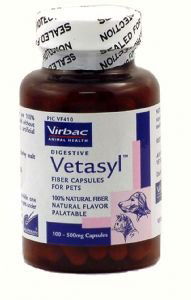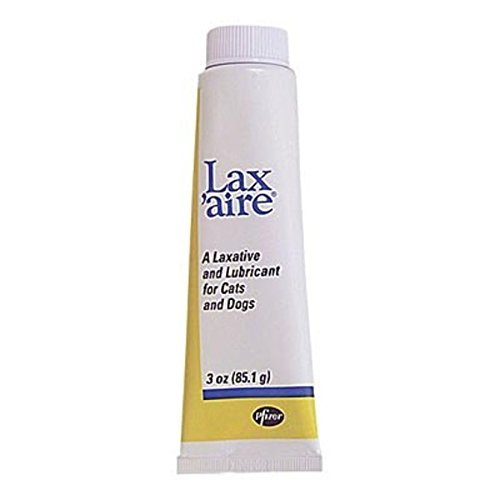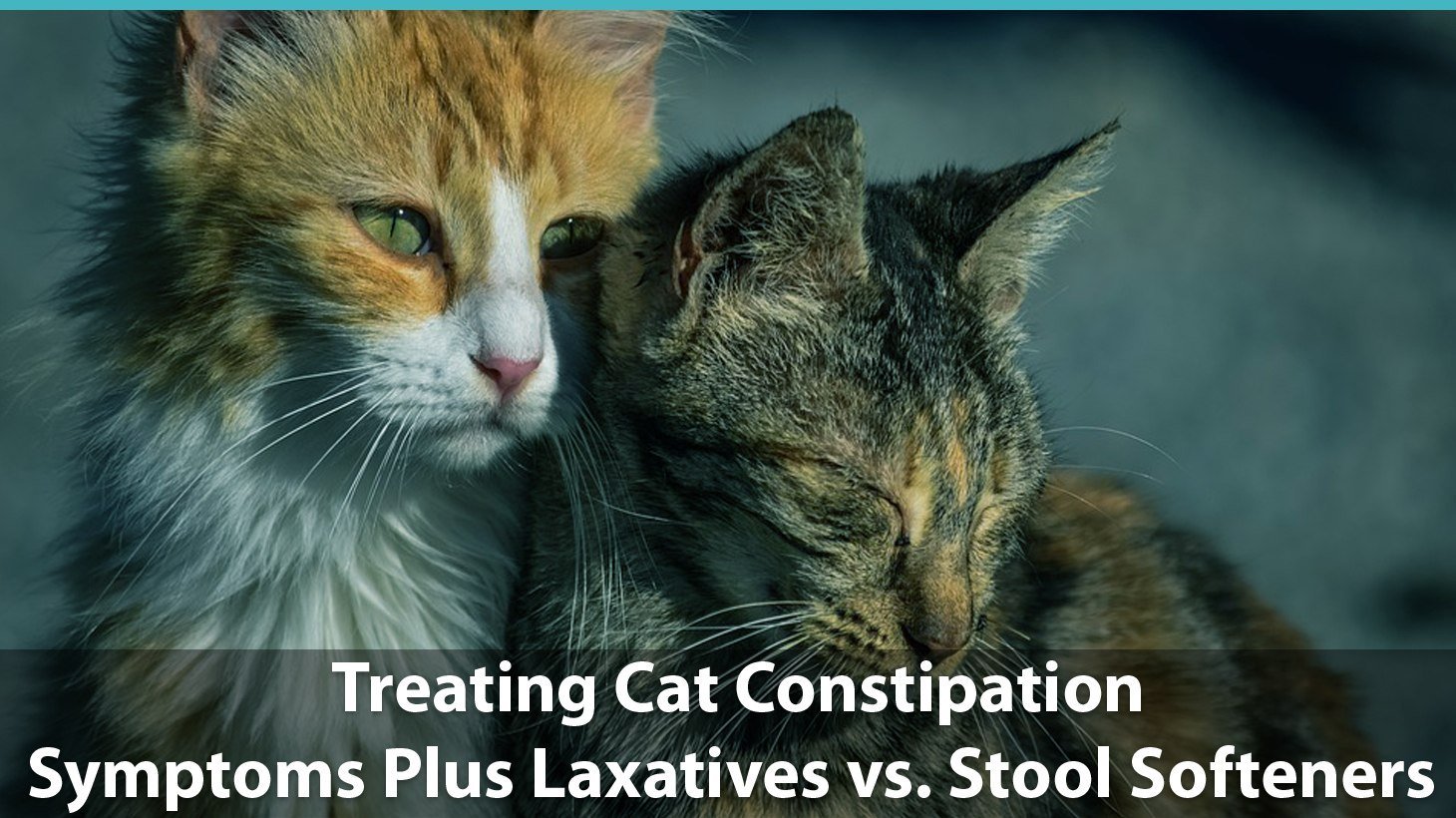Cats are different from humans in more ways than one, obviously.
That said, your cat can experience digestive system disorders just like any person. One of the most common problems kittens and their adult counterparts suffer is constipation.
Treating cat constipation is actually easier than most cat owners think. Whether your kitty’s stools are too hard or it can’t defecate at all, you can treat the problem at home without spending a small fortune on treatment plans. But before I delve into the numerous ways to treat a constipated kitty, let’s focus on what might trigger the problem.
Causes For Constipation In Cats
There are many reasons why your pet might not be pooping regularly. Constipation is often caused by hairball buildups, especially with long-haired breeds like Persians.
Here are some other common factors that may lead to feline constipation:
- Stress
- Obesity
- Pelvic or other bone injuries
- Dehydration
- Improper diet
- Inflammatory bowel disease
- Foreign bodies lodged in the digestive tract
- Other types of injuries or medical conditions
Some health problems like arthritis, cancer, anal abscesses, neurological issues and so forth can also prevent your pet from defecating properly. However, the causes can also be simpler and far less alarming. For instance, stressful surroundings or hyperactivity during extremely hot weather conditions can potentially trigger constipation.
An improper feline diet is among the most common, yet overlooked factors resulting in constipation.
Cats thrive mainly on protein, but fiber is still crucial for their well-being just like it is to humans. Lack of enough fiber will eventually lead to constipation. If your pet isn’t drinking enough water and is eating dry cat foods with little or no fiber, it will get constipated. Moreover, it may also develop other health problems over time.
Check out our reviews of the best high fiber cat food for constipation here.

Symptoms Of Constipation In Cats
If you’re unsure about whether or not your beloved furball has a constipation problem, you should keep your eyes open for the following signs:
- Extremely dry stools that can’t stick to the litter
- Frequent trips to the litter box with little or no stools
- Signs of pain when trying to defecate
- Swollen or too-firm abdomen area
- Signs of pain when you attempt to touch the abdomen
- Loss of appetite or weight
- Lack of energy
- Blood or mucus in the stools
Whether the cat is suffering from hairball buildups or other causes of constipation, its behavior will change. It may seem depressed, less active, and lack any appetite. It may even refuse to groom itself as thoroughly as it used to or use the litter box at all.
While some cases of constipation aren’t alarming, you should immediately call your vet if you spot any blood or mucus in your pet’s stools.
An undiagnosed health condition, such as cancer or inflammatory bowel disease, could be causing the problem. Needless to say, neglecting such conditions can pose a lethal danger to your furball in the long run.
Fortunately, there are ways to successfully treat cat constipation at home.
As a cat owner I’ve had to deal with this problem myself, so trust me on this one – there’s no need to break the bank on expensive healthcare treatments, especially if the reason is dehydration, improper diet or mild hairball buildups. You can solve these issues with stool softeners, laxatives, or homemade remedies.
How To Treat Cat Constipation
You have three options – homemade remedies for improved digestion, stool softener solutions, or commercially available cat laxatives. Depending on the origin of the problem and its severity, some options may not work for your own kitty’s case.
Before you reach towards a commercially available laxative or stool softener, I strongly suggest you try out some homemade remedies. They’re milder, safer, and aren’t as hard on the feline digestive system as medications are, whether prescribed or over-the-counter.

The Best Homemade Solutions For Treatment Of Constipation In Cats
Even though there are many ways to improve a cat’s digestion, each kitty is unique and requires a tailored approach. Here are the best alternatives to medications, which have worked their magic for my own furballs.
Olive oil
Olive oil is a natural lubricant. Fish oils will be more appealing to most cats, but olive or vegetable oil will do the trick just fine. A couple of teaspoons of oil mixed in your kitty’s food are enough to aid its digestive system. The best part? You already have it in your kitchen and you don’t need to spend extra cash.
Pumpkin juice
You might be surprised to know that pumpkin juice works wonders for feline digestion. Canned pumpkin or natural pumpkin juice acts as a natural laxative. As long as it doesn’t have seasoning, molasses, or any additives in it (similar to the ones in store-bought pumpkin pie filling), it’s safe for cats.
Milk
Many cats like milk, but that doesn’t mean dairy products are good for them, especially if they’re lactose intolerant. Fortunately, you can use the fact that milk often causes diarrhea in cats to your advantage.
Superfoods
Yes, superfoods for cats do exist. Things like cranberries, broccoli, spinach, and other leafy greens are extremely rich in fiber, which is just what constipated kitties need. If your kitty is constipated, don’t focus so much on proteins because they won’t soften your cat’s stools.
The Best Laxatives, Stool Softeners, And Medicine For The Treatment Of Constipation In Cats
If you can’t solve the problem with a homemade remedy, you can definitely opt for commercially available laxatives and stool softeners. In fact, some pet parents use laxatives manufactured for human consumption, such as Miralax. However, I don’t recommend using human medications when it comes to cats.
Laxatives vs. stool softeners
There is a huge difference between laxatives and stool softeners, regardless of their brands and whether or not they require prescriptions from your vet.
Laxatives are stronger and have a more direct and forceful approach towards the digestive system.
On the other hand, stool softeners are milder and act as lubricants. They aren’t so invasive and don’t use so many chemicals. Does this mean laxatives are more efficient? Not necessarily! If the problem is caused by improper diet, dehydration, or hairballs, there’s no need to use a laxative.

The Best Stool Softener For Constipated Cats
You can apply any of the above-mentioned home solutions as stool softeners for your pet’s constipation. And there’s a plethora of supplements preventing hairballs and indigestion. However, I want to focus on one stool-softening supplement in particular.
Our review process is unbiased and based on extensive research. If you buy through the links on our site, we may earn a commission.
Virbac’s Vetasyl fiber supplement

Even though this product is advertised as a fiber supplement, it’s actually an extremely efficient stool softener – and one of the best choices on the market.
Firstly, I like it because it offers natural fiber and doesn’t have harmful chemicals.
Secondly, it’s suitable for kittens, adults, and senior cats alike. Moreover, it’s also perfectly safe for dogs. So if you own a kitty and a canine, I definitely recommend this stool softener for your pets, as needed.
Compared to most feline medicines, this supplement is quite affordable. The jar contains 100 capsules, which you can break easily in order to sprinkle their contents on your pet’s food. And unlike some medications, this one doesn’t taste like medicine, so finicky eaters are less likely to avoid it.
Finally, it can solve the constipation problem even if the issue isn’t caused by hairballs.
>> Click here to read more reviews and see today’s best price on Amazon.com <<
The Best Laxatives For Cats
If you want something stronger for severe constipation, you can also get over-the-counter laxatives. Here are my personal top choices.
Lax-Aire

A tried-and-true laxative for my furballs is Lax-Aire. Long-time feline owners have probably already heard of it or even used it.
This is single handedly the best cat relaxant for finicky cats!
Packed with the tasty flavor of cod liver oil, it’s a treat for any kitty’s taste buds! The lube is easy to administer and you can even feed it to your pet from your finger. It uses petroleum as its primary laxative ingredient and treats all types of constipation, regardless of the cause.
The only downside to it is that its petroleum contents make this medication non-suitable for everyday usage. Nevertheless, it’s truly efficient and is safe if you use it no more than 2-3 times a week.
>> Click here to read more reviews and see today’s best price on Amazon.com <<
Cat Lax

If you want an over-the-counter effective laxative that won’t break the bank, I strongly recommend Cat Lax for any feline breed.
This is an affordable and efficient option.
Its active ingredient is petroleum, so you must not exceed the dosage your vet will recommend for safety purposes. As I pointed out before, laxatives are strong medications. This particular one, however, doesn’t taste like a medicine. Another reason why I strongly recommend it, apart from its affordable price tag, is that most feline furballs will adore the combination of cod liver oil, caramel, and malt syrup.
However, I don’t advise you to use it unless you’ve talked to a reputable vet first.
>> Click here to read more reviews and see today’s best price on Amazon.com <<
Regardless of the type of medication or homemade solution you choose, don’t ever neglect your kitty’s constipation! It may be caused by mild dehydration, but it also may be caused by an undiagnosed health condition.
If you can’t fix the problem in about a week or so with any homemade or over-the-counter solution, take your pet to the vet’s office for a check-up. Catching an undiagnosed disease on time can be life-saving for your furball.



Hi,
Just want to mention that I have been using VSF Lax-eze daily in wet cat food. Thought you might want to add it to your recomendations. Before starting use all three of my cats (2 male, 1 female) were not having sufficient BMs (2 were constipated). Stopped feeding any dry food. Mixing Lax-eze into wet food. All having excellent BMs for the last 8 months.
Gerhard Konig